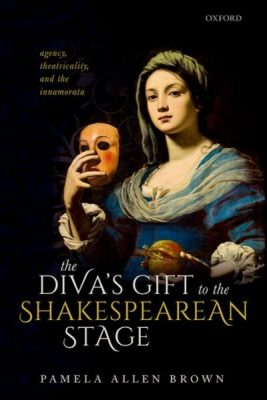Pamela Allen Brown, Author
The Diva's Gift to the Shakespearean Stage traces the transnational connections between Shakespeare's all-male stage and the first female stars in the West. The book is the first to use Italian and English plays and other sources to explore this relationship, focusing on the gifted actress who radically altered female roles and expanded the horizons of drama just as the English were building their first paying theaters. By the time Shakespeare began to write plays, women had been acting professionally in Italian troupes for two decades, traveling across the Continent and acting in all genres, including tragicomedy and tragedy. Some women became the first truly international stars, winning royal and noble patrons and literary admirers beyond Italy, with repeat tours in France and Spain.
Elizabeth and her court caught wind of the Italians' success, and soon troupes with actresses came to London to perform. Through contacts direct and indirect, English professionals grew keenly aware of the mimetic revolution wrought by the skilled diva, who expanded the innamorata and made the type more engaging, outspoken, and autonomous. Some English writers pushed back, treating the actress as a whorish threat to the all-male stage, which had long minimized female roles. Others saw a vital new model full of promise. Faced with rising demand for Italian-style plays, Lyly, Marlowe, Kyd, and Shakespeare used Italian models from scripted and improvised drama to turn out stellar female parts in the mode of the actress, altering them in significant ways while continuing to use boys to play them. Writers seized on the comici's materials and methods to piece together pastoral, comic, and tragicomic plays from mobile theatergrams--plot elements, roles, stories, speeches, and star scenes, such as cross-dressing, the mad scene, and the sung lament. Shakespeare and his peers gave new prominence to female characters, marked their passions as un-English, and devised plots that figured them as self-aware agents, not counters traded between men. Playing up the skills and charisma of the boy player, they produced stunning roles charged with the diva's prodigious theatricality and alien glamour. Rightly perceived, the diva's celebrity and her acclaimed skills posed a radical challenge that pushed English playwrights to break with the past in enormously generative and provocative ways.
